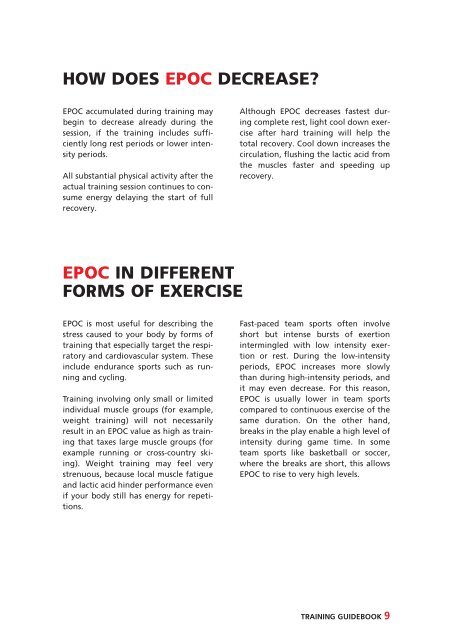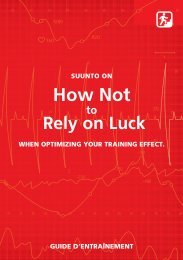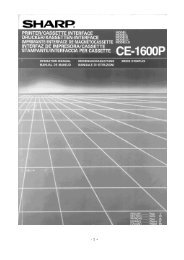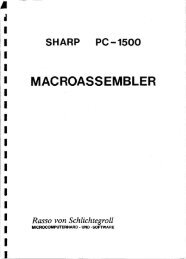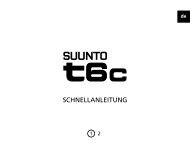Rely on Luck - Suunto
Rely on Luck - Suunto
Rely on Luck - Suunto
Create successful ePaper yourself
Turn your PDF publications into a flip-book with our unique Google optimized e-Paper software.
HOW DOES EPOC DECREASE?<br />
EPOC accumulated during training may<br />
begin to decrease already during the<br />
sessi<strong>on</strong>, if the training includes sufficiently<br />
l<strong>on</strong>g rest periods or lower intensity<br />
periods.<br />
All substantial physical activity after the<br />
actual training sessi<strong>on</strong> c<strong>on</strong>tinues to c<strong>on</strong>sume<br />
energy delaying the start of full<br />
recovery.<br />
Although EPOC decreases fastest during<br />
complete rest, light cool down exercise<br />
after hard training will help the<br />
total recovery. Cool down increases the<br />
circulati<strong>on</strong>, flushing the lactic acid from<br />
the muscles faster and speeding up<br />
recovery.<br />
EPOC IN DIFFERENT<br />
FORMS OF EXERCISE<br />
EPOC is most useful for describing the<br />
stress caused to your body by forms of<br />
training that especially target the respiratory<br />
and cardiovascular system. These<br />
include endurance sports such as running<br />
and cycling.<br />
Training involving <strong>on</strong>ly small or limited<br />
individual muscle groups (for example,<br />
weight training) will not necessarily<br />
result in an EPOC value as high as training<br />
that taxes large muscle groups (for<br />
example running or cross-country skiing).<br />
Weight training may feel very<br />
strenuous, because local muscle fatigue<br />
and lactic acid hinder performance even<br />
if your body still has energy for repetiti<strong>on</strong>s.<br />
Fast-paced team sports often involve<br />
short but intense bursts of exerti<strong>on</strong><br />
intermingled with low intensity exerti<strong>on</strong><br />
or rest. During the low-intensity<br />
periods, EPOC increases more slowly<br />
than during high-intensity periods, and<br />
it may even decrease. For this reas<strong>on</strong>,<br />
EPOC is usually lower in team sports<br />
compared to c<strong>on</strong>tinuous exercise of the<br />
same durati<strong>on</strong>. On the other hand,<br />
breaks in the play enable a high level of<br />
intensity during game time. In some<br />
team sports like basketball or soccer,<br />
where the breaks are short, this allows<br />
EPOC to rise to very high levels.<br />
TRAINING GUIDEBOOK 9


